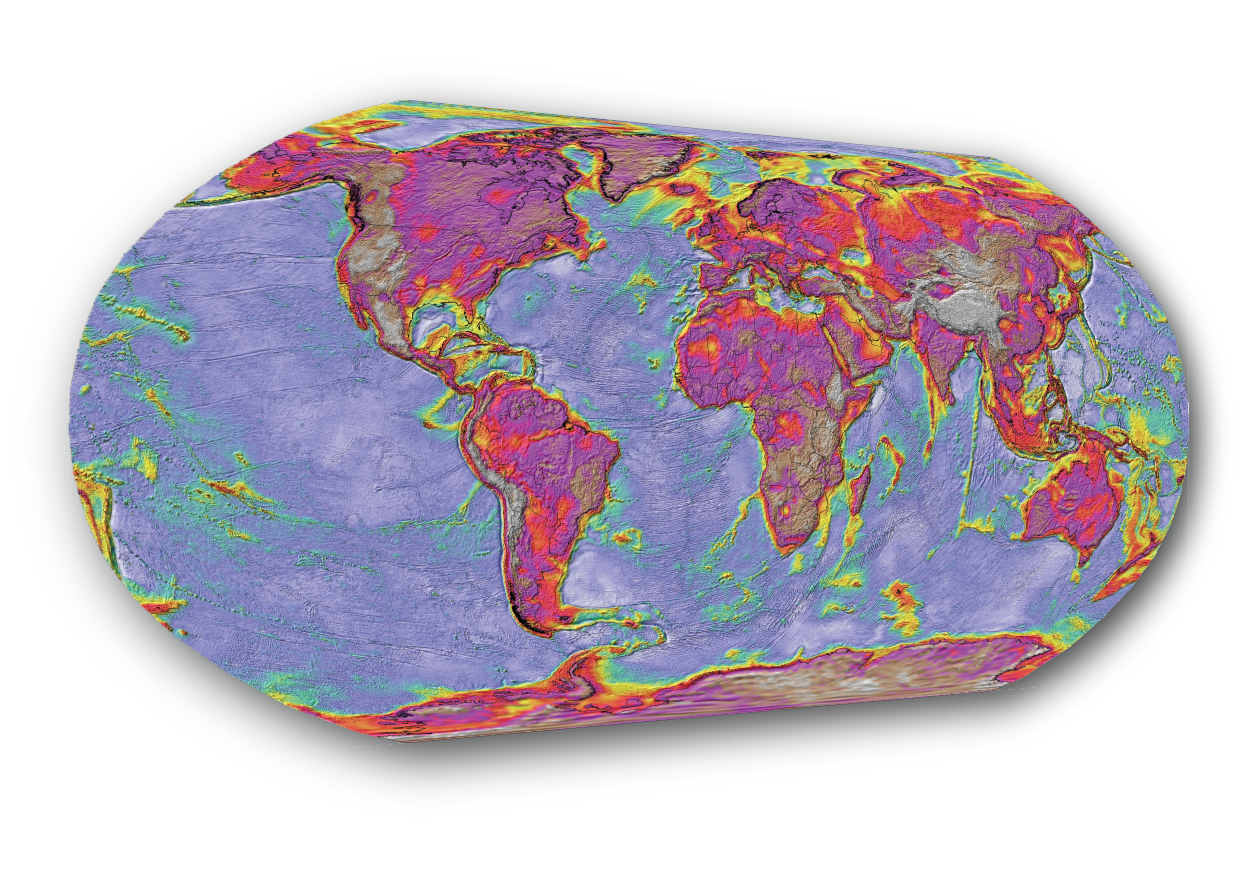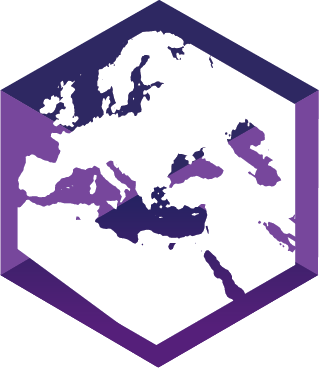OCTek Project
OCTek Gravity Inversion

The OCTek gravity inversion project combines gravity inversion and plate reconstructions to support new ventures exploration at deepwater rifted continental margins together with associated petroleum systems modelling.
OCTek Gravity Inversion uses free-air gravity, bathymetry and sediment thickness data to produce maps
and grids of:
1 Depth to Moho
2 Total crustal thickness
3 Residual continental-crustal thickness
4 Crust and lithosphere thinning/beta factor
5 The lithosphere thermal-gravity-anomaly resulting from rifting and
breakup
Key to the new gravity inversion technique is the incorporation into the inversion scheme of:
• The lithosphere thermal gravity anomaly resulting from breakup,
which at the
time of breakup is a very strong negative anomaly, relaxing slowly with time
• Prediction of new volcanic crustal addition during breakup,
leading to ocean
crust formation, using the melt parameterization models of our former iSIMM colleague Prof Bob White
(White & McKenzie 1989, JGR; Bown & White 1994, EPSL).
Published results have shown the importance of incorporating both these parameters in the inversion
when investigating deepwater margins.
Input Data and Output Results
OCTek works with public-domain gravity, bathymetry and sediment thickness data to produce maps and
grids of:
• Depth to Moho
• Total crustal thickness
• Residual continental-crustal thickness
• Crustal thinning factor and beta factor
• Residual thermal gravity anomaly
Confidential commercial studies can also be undertaken using proprietary sediment thickness data.
Heat Flow Mapping
OCTek thinning factor maps can be used to build new maps of top basement heat-flow history. Each OCTek report includes a small software executable file which, with minimal user input, will convert thinning factor maps to maps of top basement heat-flow, both at the present-day and step-by-step back through time to breakup.
Studies and Reports
Eight studies are available to purchase:







The OCTek project (tectonics of the Ocean-Continent Transition) is a collaboration between Badley Geoscience and Prof. Nick Kusznir, leader of the Geodynamics Research Group at Liverpool University, UK.